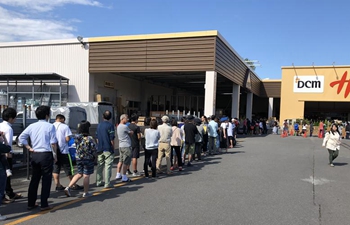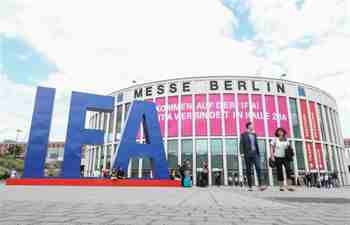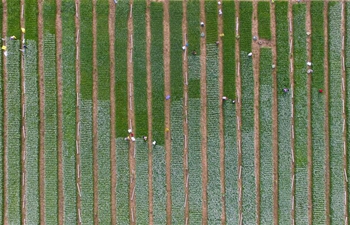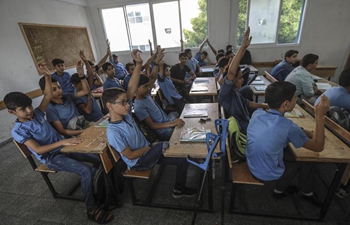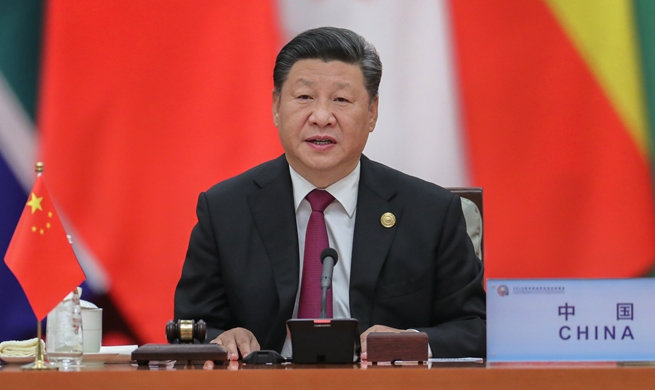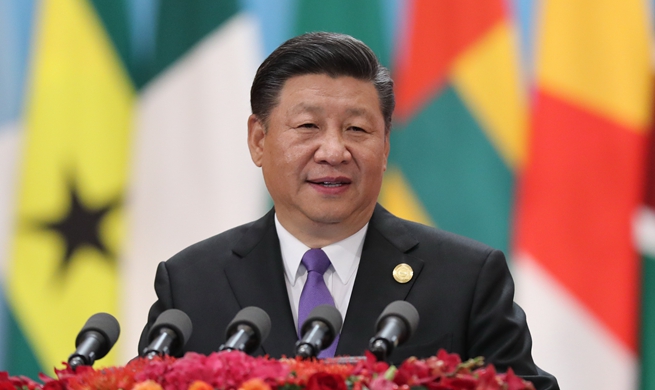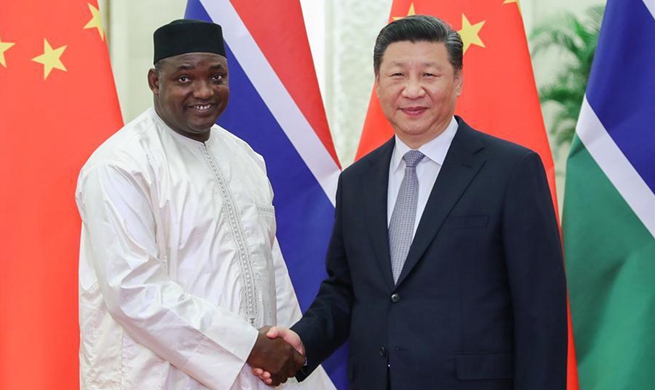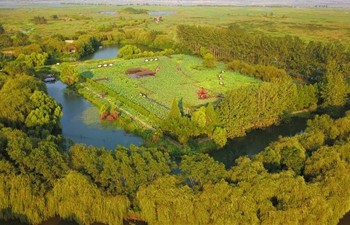BERLIN, Sept. 6 (Xinhua) -- Chancellor Angela Merkel (CDU) has criticized the Alternative for Germany (AfD) party sharply on Thursday for inciting hatred and seeking to overthrow Germany's constitutional order.
"The AfD is helping to fuel popular anger, this is something which simply must be said", Merkel told the public broadcaster "RTL" during a traditional "summer interview". She added that senior members of the party had recently made statements in response to a series of far-right demonstrations in Chemnitz which she viewed "extremely critically", including an appeal by AfD deputy leader Alexander Gauland to launch a "silent revolution" in Germany.
AfD politicians recently helped to organize several demonstrations inspired by the alleged murder of a German with Cuban roots by a Syrian and Iraqi national in Chemnitz. Following widely-publicized clashes between protestors and police, anti-Nazi protestors, and civilians, the party leadership defended what it described as understandable outbursts of anger.
The events and subsequent comments led to prominent calls for the Federal Office for the Protection of the Constitution (BfV) to begin monitoring the AfD as an organization which potentially posed a risk to public security. Thomas Opperman (SPD), deputy president of the federal parliament (Bundestag), argued that violent demonstrations in the East German town had showcased how the AfD cooperated with Neonazis and other far-right activists who were plotting to overthrow Germany's constitutional order.
Speaking to "RTL" on Thursday, Merkel noted that there was no recommendation from national intelligence services for the BfV to begin monitoring the AfD. "Firstly, we should confront the AfD politically", the Christian Democratic Union (CDU) leader said.
Merkel hereby urged citizens to become actively engaged in such debate, as exemplified by a concert in Chemnitz to commemorate the murder victim while condemning right-wing extremism which drew more than 65,000 people from across the country earlier this week.
The chancellor said that Chemnitz experienced "very regrettable events" recently, starting with the violent and still unclarified death of a young man at a local city festival. She warned, however, that demonstrations which were "filled with hate and directed against other people" were not an appropriate way to grieve for the victim.
By contrast, Christian Social Union (CSU) leader and interior minister Horst Seehofer defended the protests in Chemnitz on Thursday. "I would have marched on the streets as well as a citizen if I were not a federal minister", Seehofer told the newspaper "Rheinische Post." Nevertheless, He insisted that he would have distanced himself from "radicals" such as the "Pro Chemnitz" group which organized the demonstrations.
The interior minister argued that the Chemnitz murder could have been prevented if stricter asylum policies championed by him had already been implemented earlier. The Iraqi murder suspect reportedly filed an application for humanitarian residency in Bulgaria prior to coming to Germany and would hence be ineligible to enter under the CSU leader's new "migration master plan". According to Seehofer, such cases were "costing (the government) the trust of citizens."
Seehofer consequently attributed the poor performance of the CSU in opinion polls ahead of regional elections to the failure of the government to toughen its stance on migration. "The migration question is the mother of all political problems in this country", Seehofer said.
